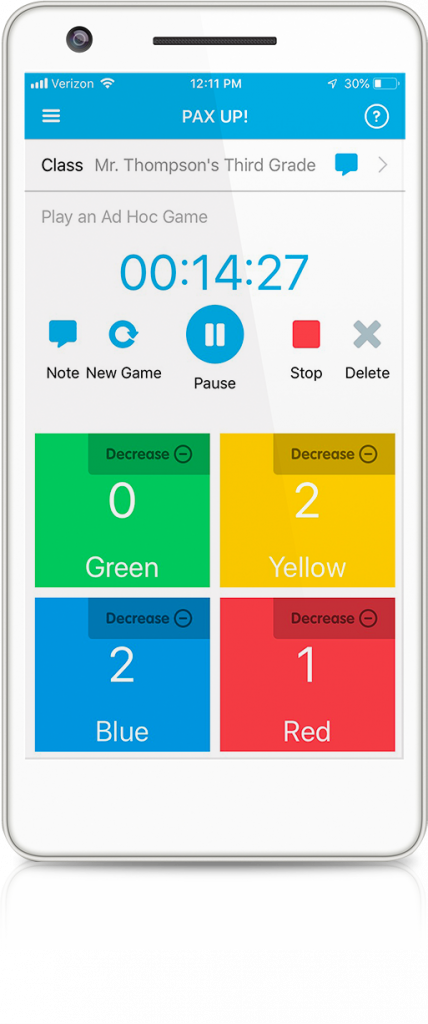
“My kids are so much happier, healthy, and peaceful”
SHERLENE JOHNSON, CHATAIGNIER ELEMENTARY, CHATAIGNIER, LOUISIANA
PAX Good Behavior Game®
The PAX Good Behavior Game® is an evidence-based universal preventive intervention applied by teachers in the classroom. This evidence-based practice consists of a set of research-based strategies with origins in behavioral science and neuroscience that operate together to improve children’s self-regulation. Teachers implement these strategies as part of their daily routines in carrying out tasks such as getting students’ attention, selecting students for tasks, transitioning from one task to the next, working as part of a team, limiting problematic behavior, and reinforcing pro-social behavior.
The PAX Good Behavior Game® helps to build children’s self-regulation, resulting in improved focus and attention, improved test scores and other academic outcomes, reduced alcohol and other drug use, reduced psychiatric disorders, and reduced suicide. PAX is unique in arranging for peer reinforcement for exhibiting prosocial behavior and peer reinforcement for inhibiting problematic behavior. PAX truly benefits everyone by making the children the heroes of change.
PAX GBG IMPROVES…
ACADEMIC OUTCOMES
→
SELF-REGULATION IN YOUTH
→
REDUCED WORKPLACE STRESS
→
Data-Tracking Technology
PAX GBG at your Fingertips!
Sign up now for the PAX UP! App
The PAX UP! App is designed to help you implement PAX strategies, as well as collect and analyze data for maximum, proven benefit to increase student academics while improving their mental and behavioral health.
The PAX UP! App is available for free on all mobile devices, tablets, and the Web for individuals trained in PAX GBG.

“PAX has been very beneficial throughout my classroom. It promotes not only social learning but also emotional learning in all students. When students are asked to help create expectations, it helps to improve their awareness and to recognize their own behaviors and feelings. PAX Games were also very beneficial because it helped with their self-regulation which makes a huge difference.”
Olivia Aguillard, W.W. Stewart Elementary
“I have been teaching for 17 years, I have been using PAX for the last 2 years in my classroom. I love how the expectations are created by the students as to what is acceptable and unacceptable behavior. Students hold themselves and each other accountable while playing the PAX Game. I have seen my student’s confidence rise as they received Tootles from their peers. I like how PAX is easy to follow with minimal extra work placed on me as a teacher.”
Aleah West, Pine Prairie High School
“The impact of PAX at Bayou Chicot Elementary has been phenomenal. Not only have we seen an improvement in behavior and fewer referrals written this year, but we have seen an improvement in the students’ emotional well-being as well. The younger students work hard every day to earn their spot as PAX Leaders that day. It gives them a goal to work towards and they feel important. Granny’s Wacky Prize is huge throughout the grade levels. When they know they are working towards a surprise that they, themselves, came up with, it means a lot more. Having the students come up with behaviors they want to see more of and less of gives the teachers an idea of where the kids are but also helps the students self-assess. Tootles are huge throughout our campus. Not only do students write them to each other and staff as well but the staff writes them to students and other staff members. It creates a positive environment throughout campus. Implementing PAX this year was a huge win for everyone. We look forward to learning more next year and perfecting the practice we put into place this year!”
Chelsie Soileau, Bayou Chicot Elementary School







